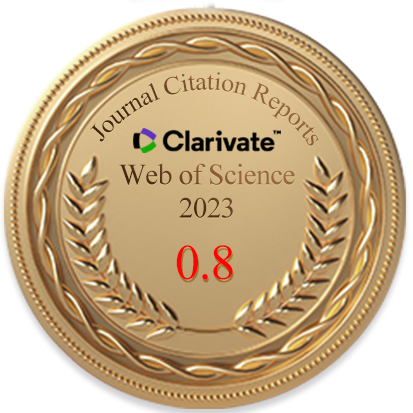
Challenges in Sustainability (CiS) is a peer-reviewed open-access journal dedicated to advancing research on sustainability across environmental, social, and economic dimensions. The journal provides a scholarly platform for studies that investigate the drivers, impacts, and solutions related to global sustainability challenges in both developed and developing contexts. CiS encourages conceptual, empirical, and policy-focused contributions that address climate resilience, resource management, sustainable technologies, social equity, and responsible governance. The journal values interdisciplinary approaches that integrate scientific evidence with policy and practice to support sustainability transitions and long-term societal well-being. Committed to research integrity, rigorous peer-review, and timely knowledge dissemination, CiS is published bimonthly by Acadlore, releasing six issues per year in February, April, June, August, October, and December.
Professional Editorial Standards - Every submission undergoes a rigorous and well-structured peer-review and editorial process, ensuring integrity, fairness, and adherence to the highest publication standards.
Efficient Publication - Streamlined review, editing, and production workflows enable the timely publication of accepted articles while ensuring scientific quality and reliability.
Gold Open Access - All articles are freely and immediately accessible worldwide, maximizing visibility, dissemination, and research impact.
Challenges in Sustainability (CiS) is a peer-reviewed open-access journal dedicated to advancing research on sustainability across environmental, social, and economic dimensions. The journal provides a scholarly platform for studies that investigate the drivers, impacts, and solutions related to global sustainability challenges in both developed and developing contexts. CiS encourages conceptual, empirical, and policy-focused contributions that address climate resilience, resource management, sustainable technologies, social equity, and responsible governance. The journal values interdisciplinary approaches that integrate scientific evidence with policy and practice to support sustainability transitions and long-term societal well-being. Committed to research integrity, rigorous peer-review, and timely knowledge dissemination, CiS is published bimonthly by Acadlore, releasing six issues per year in February, April, June, August, October, and December.
Professional Editorial Standards - Every submission undergoes a rigorous and well-structured peer-review and editorial process, ensuring integrity, fairness, and adherence to the highest publication standards.
Efficient Publication - Streamlined review, editing, and production workflows enable the timely publication of accepted articles while ensuring scientific quality and reliability.
Gold Open Access - All articles are freely and immediately accessible worldwide, maximizing visibility, dissemination, and research impact.

Aims & Scope
Aims
Challenges in Sustainability (CiS) is an international peer-reviewed open-access journal dedicated to advancing research on sustainability from environmental, social, and economic perspectives. The journal serves as a platform for high-quality studies that examine global sustainability challenges, resilience strategies, and pathways for driving a just and sustainable transition.
CiS aims to foster interdisciplinary scholarship that connects scientific analysis, sustainable technologies, governance frameworks, and behavioural transformation. The journal welcomes conceptual, empirical, and applied contributions addressing issues such as climate adaptation and mitigation, circular resource management, clean energy development, social inclusion, and sustainable policy-making in diverse geographical contexts.
Through its strong commitment to bridging academic insights with practical solutions, CiS promotes rigorous research that supports evidence-based decision-making and informs sustainable development practices. The journal particularly values contributions that provide actionable models, evaluation frameworks, sustainability assessment tools, and policy-relevant strategies to enhance societal well-being and long-term ecological integrity.
Key features of CiS include:
A strong emphasis on sustainability research that integrates environmental, social, and economic dimensions;
Support for interdisciplinary approaches linking scientific knowledge, technological innovation, and governance mechanisms;
Encouragement of contributions that evaluate sustainability performance and inform policy and practical decision-making;
Promotion of insights that advance resilience, resource efficiency, social inclusion, and long-term ecological integrity;
A commitment to rigorous peer-review standards, research ethics, and responsible dissemination of open-access knowledge.
Scope
The scope of CiS encompasses a broad range of subjects, providing an in-depth and comprehensive investigation into issues related to sustainability:
Climate Resilience and Adaptation: Advanced research on strategies to enhance the resilience of communities, ecosystems, and economies to climate variability and change.
Circular Economy and Waste Reduction: Studies focusing on the principles of circular economy, waste management practices, and strategies for reducing waste generation across different sectors.
Renewable Energy Technologies and Systems: Innovative research on the development, integration, and optimization of renewable energy sources, including solar, wind, hydro, and bioenergy.
Sustainable Agriculture and Food Systems: Investigations into sustainable farming practices, food systems planning, and the role of agriculture in maintaining biodiversity and ecosystem services.
Water Resources Management: Comprehensive research on sustainable water use, watershed management, and strategies to address water scarcity and quality issues.
Sustainable Transportation and Mobility: Exploration of sustainable transportation solutions, including electric and alternative fuel vehicles, public transportation systems, and urban mobility planning.
Green Infrastructure and Sustainable Urban Planning: Studies on the design and implementation of green infrastructure, sustainable building technologies, and urban planning approaches that contribute to sustainable urban development.
Social Sustainability and Equity: Research on social aspects of sustainability, including social equity, community engagement, and the intersection of social justice with environmental sustainability.
Corporate Sustainability and Responsibility: Analysis of corporate practices in sustainability, including sustainability reporting, corporate social responsibility initiatives, and sustainable business models.
Technology for Sustainability: Examination of the role of technology in promoting sustainability, including information and communication technologies (ICT), artificial intelligence (AI), and big data analytics in environmental monitoring and sustainability assessments.
Environmental Policy and Governance: Evaluation of policy frameworks, governance mechanisms, and international agreements that facilitate sustainable development goals.
Sustainability Education and Literacy: Studies on the integration of sustainability into education systems, development of sustainability curricula, and promotion of environmental literacy.
Biodiversity Conservation and Ecosystem Services: Research on the conservation of biodiversity, restoration of ecosystems, and valuation of ecosystem services.
Health and Well-being in the Context of Sustainability: Explorations of the connections between environmental sustainability and public health, including studies on pollution, environmental justice, and access to green spaces.

Abstract

Abstract

Abstract

Abstract

Abstract

Abstract

Abstract

Abstract











